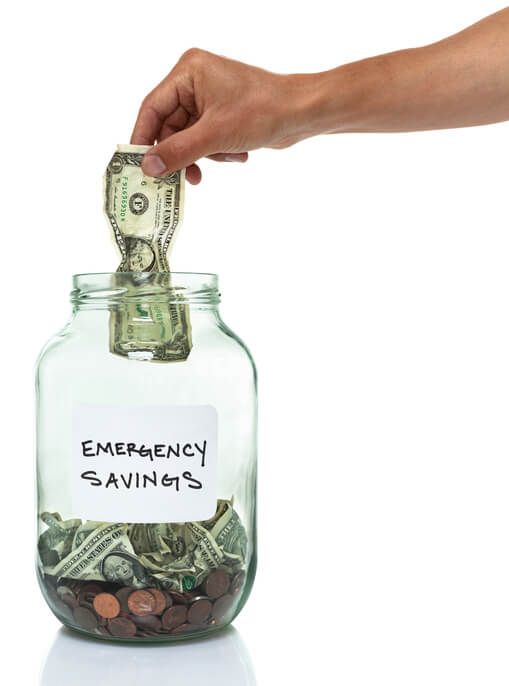Start building an emergency fund
You can start building your emergency fund by setting small savings goals. Setting aside even $20 or $30 each week will add up to hundreds of dollars in a few months. It's a good idea to put this money in a separate account so it's easier to keep track of and you won't be as tempted to spend it. Most financial experts recommend saving enough to pay six month's worth of living expenses.
The Balance states that you need to take into consideration both variable and fixed expenses when planning your emergency fund. Fixed expenses, such as a mortgage, insurance and childcare, are the same each month. Variable expenses often include credit card payments and groceries. You'll need to calculate the highest amount you would normally spend on variable expenses when making a budget.
Organize financial records
Getting all your financial records in order isn't difficult, but it will take some organization. Consumer Reports suggests storing all your important documents in plastic bags or watertight containers. A few items to have include the following:
- Birth Certificates
- Driver's License
- Passports
- Marriage/Divorce Records
- All Insurance Information
- Credit Card Information
- Mortgage/Car Titles
- Wills/Power of Attorney
It's also important to make copies and have backup documents. You might want to put them on cloud storage or save them on a flash drive.
Diversify your investments
Diversifying your assets is a great way to promote good financial health and help create cash flow during an emergency. It's important to have different types of investments. In case the market would be down when your emergency happens, you'll need a combination of savings bonds, cash savings accounts and stocks. According to the U.S. Securities and Exchange Commission, cash, stocks and bonds historically have not gone up or down all at the same time.
Protect your assets
It's crucial to make sure your assets are protected in the case of an emergency. An important way to do this is to make sure you have adequate insurance. The following are several types of insurance you'll need to protect everything from your health to your home and car.
- Health Insurance - Try to choose a plan that will meet your personal healthcare needs. It's also necessary to have enough disability coverage in case you would be unable to work for an extended period of time.
- Home Insurance - Your home is one of the biggest investments you'll ever make. Having enough insurance to rebuild and replace items in the event of a fire or other disaster can protect you from financial ruin.
- Auto Insurance - Nearly all states require that you carry at least liability auto insurance. You'll want more coverage if the car is new or you're still making payments.
- Life Insurance - Many people may leave life insurance off the list of necessities. If you would pass unexpectedly, having life insurance can play a crucial role in maintaining financial stability. Whether it's income replacement for a spouse or enough to cover final expenses, life insurance is an important part of protecting your assets.
Make sure you're able to cover any deductibles or co-payments if you need to file any type of insurance claim.
If you're not prepared for a financial setback you may be forced to dip into a retirement account or increase credit card debt. By following these few steps you'll be financially prepared for the unexpected. TDECU Wealth Advisors (TWA) can create a financial plan that's customized to meet your exact needs. Contact TWA today for more information.
Sources:
Balance - https://www.thebalance.com/prepare-emergency-fund-1289901
Consumer Reports - https://www.consumerreports.org/cro/taxonomy/financial-emergency-survival-guide
U.S. Securities and Exchange Commission - https://www.sec.gov/investor/pubs/tenthingstoconsider.htm
